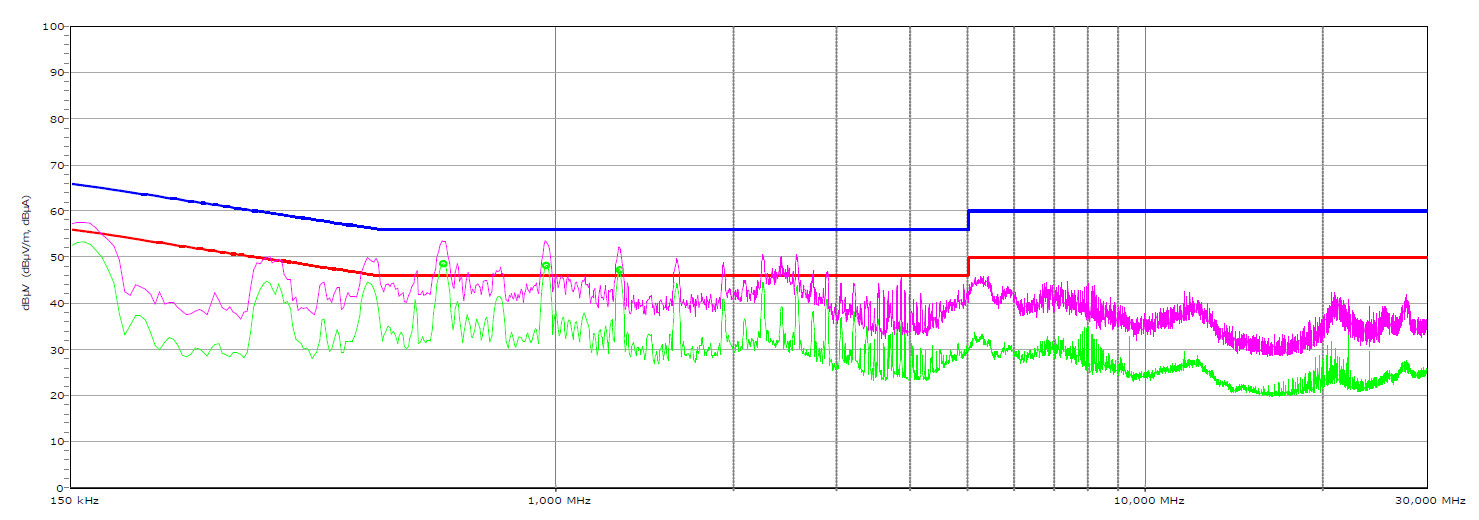Why you can trust Tom's Hardware
Advanced Transient Response Tests
For details about our transient response testing, please click here.
In the real world, power supplies are always working with loads that change. It's of immense importance, then, for the PSU to keep its rails within the ATX specification's defined ranges. The smaller the deviations, the more stable your PC will be with less stress applied to its components.
We should note that the ATX spec requires capacitive loading during the transient rests, but in our methodology, we also choose to apply a worst case scenario with no additional capacitance on the rails.
Advanced Transient Response at 20% – 20ms
| Voltage | Before | After | Change | Pass/Fail |
| 12V | 12.058V | 11.923V | 1.12% | Pass |
| 5V | 5.016V | 4.941V | 1.49% | Pass |
| 3.3V | 3.279V | 3.174V | 3.20% | Pass |
| 5VSB | 5.000V | 4.927V | 1.47% | Pass |
Advanced Transient Response at 20% – 10ms
| Voltage | Before | After | Change | Pass/Fail |
| 12V | 12.058V | 11.863V | 1.62% | Pass |
| 5V | 5.015V | 4.932V | 1.65% | Pass |
| 3.3V | 3.278V | 3.170V | 3.28% | Pass |
| 5VSB | 4.999V | 4.926V | 1.47% | Pass |
Advanced Transient Response at 20% – 1ms
| Voltage | Before | After | Change | Pass/Fail |
| 12V | 12.059V | 11.888V | 1.42% | Pass |
| 5V | 5.015V | 4.930V | 1.70% | Pass |
| 3.3V | 3.278V | 3.162V | 3.53% | Pass |
| 5VSB | 4.999V | 4.923V | 1.52% | Pass |
Advanced Transient Response at 50% – 20ms
| Voltage | Before | After | Change | Pass/Fail |
| 12V | 11.985V | 11.900V | 0.70% | Pass |
| 5V | 5.011V | 4.942V | 1.37% | Pass |
| 3.3V | 3.268V | 3.159V | 3.34% | Pass |
| 5VSB | 4.985V | 4.918V | 1.35% | Pass |
Advanced Transient Response at 50% – 10ms
| Voltage | Before | After | Change | Pass/Fail |
| 12V | 11.985V | 11.900V | 0.71% | Pass |
| 5V | 5.010V | 4.932V | 1.55% | Pass |
| 3.3V | 3.268V | 3.157V | 3.38% | Pass |
| 5VSB | 4.984V | 4.916V | 1.37% | Pass |
Advanced Transient Response at 50% – 1ms
| Voltage | Before | After | Change | Pass/Fail |
| 12V | 11.987V | 11.908V | 0.65% | Pass |
| 5V | 5.010V | 4.938V | 1.44% | Pass |
| 3.3V | 3.268V | 3.155V | 3.45% | Pass |
| 5VSB | 4.984V | 4.921V | 1.27% | Pass |
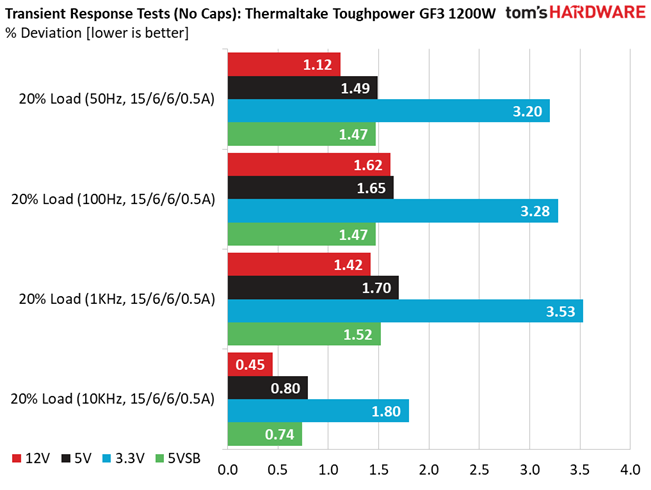
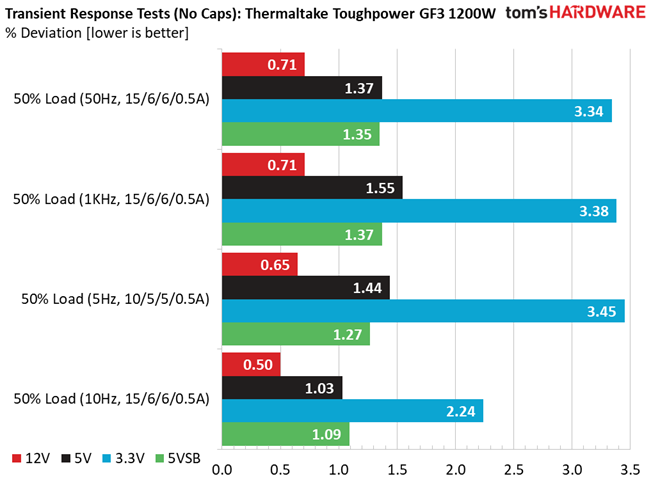
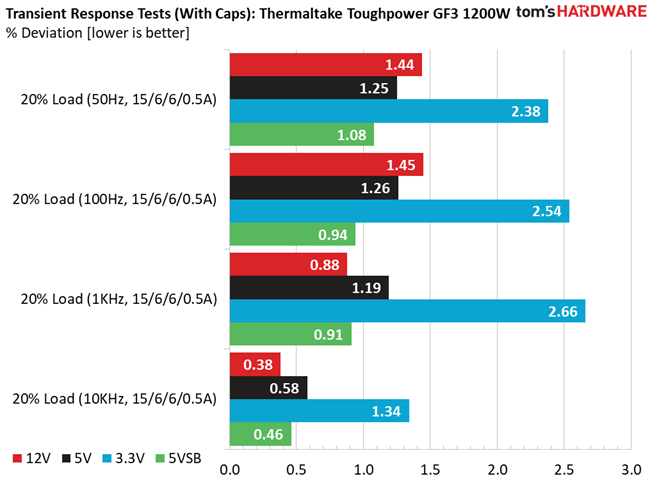
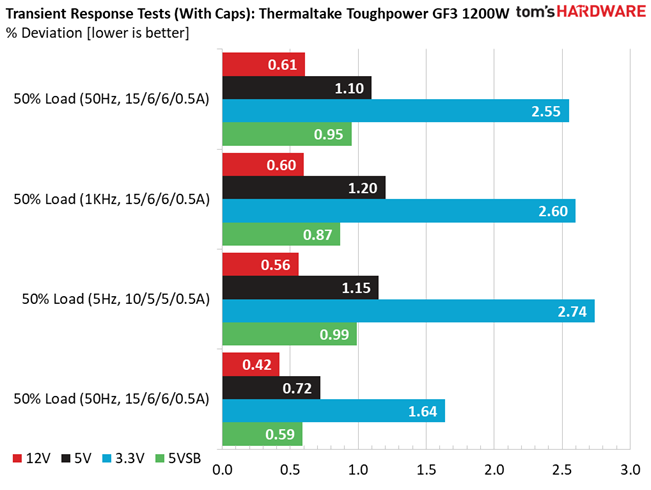
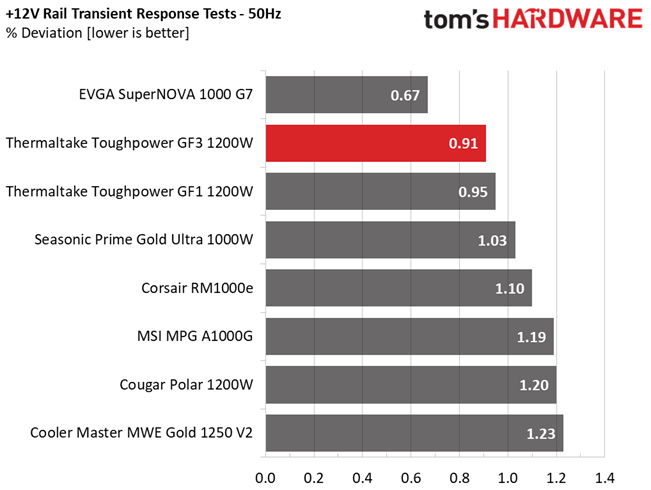
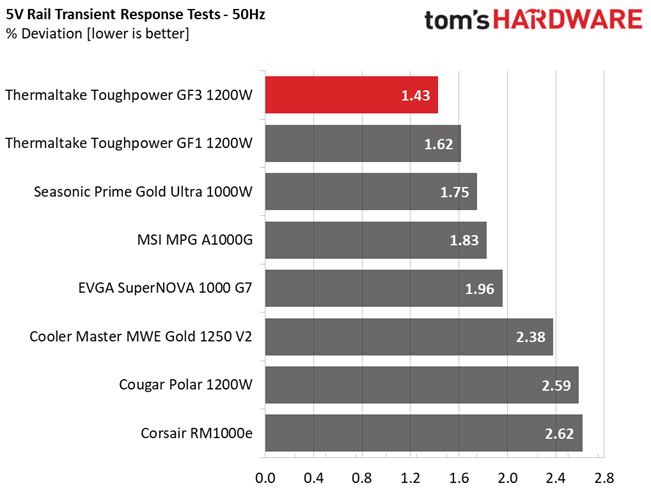
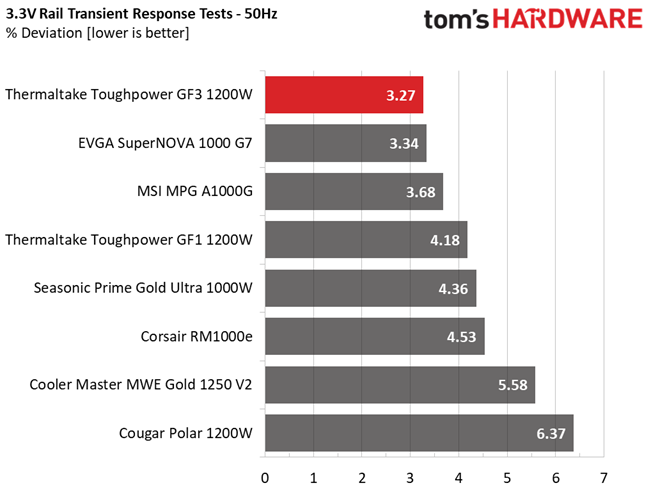
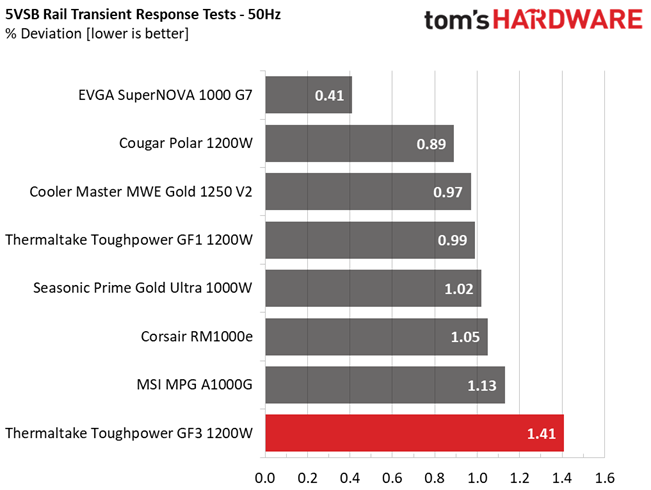
Transient response is good on all major rails.
Turn-On Transient Tests
In the next set of tests, we measure the PSU's response in simpler transient load scenarios—during its power-on phase. Ideally, we don't want to see any voltage overshoots or spikes since those put a lot of stress on the DC-DC converters of installed components.
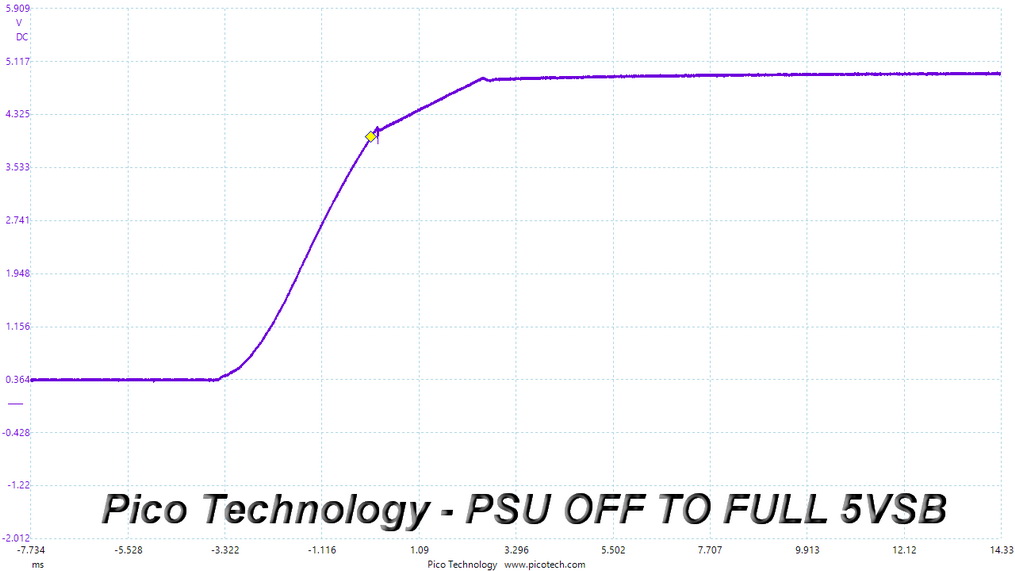
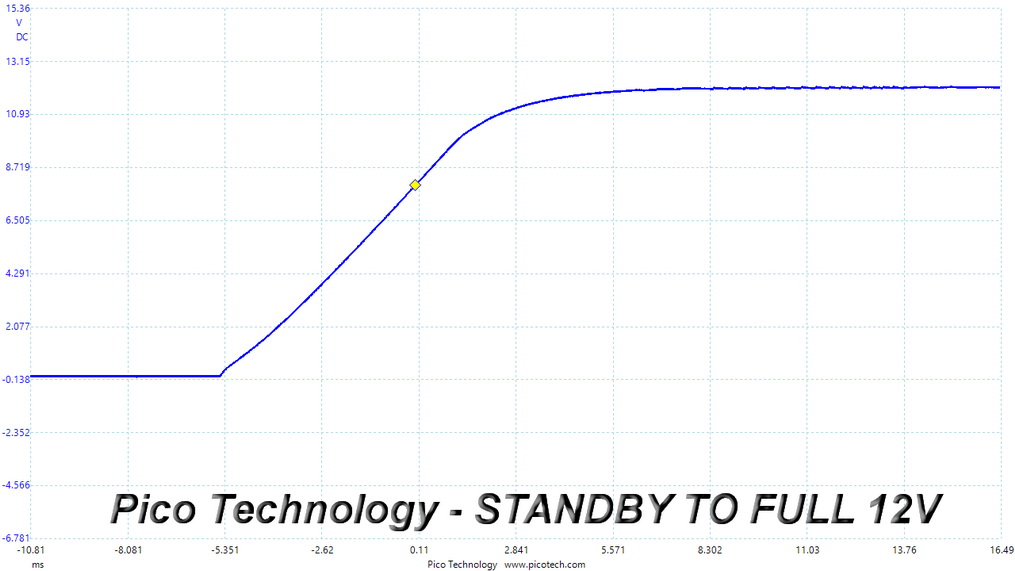
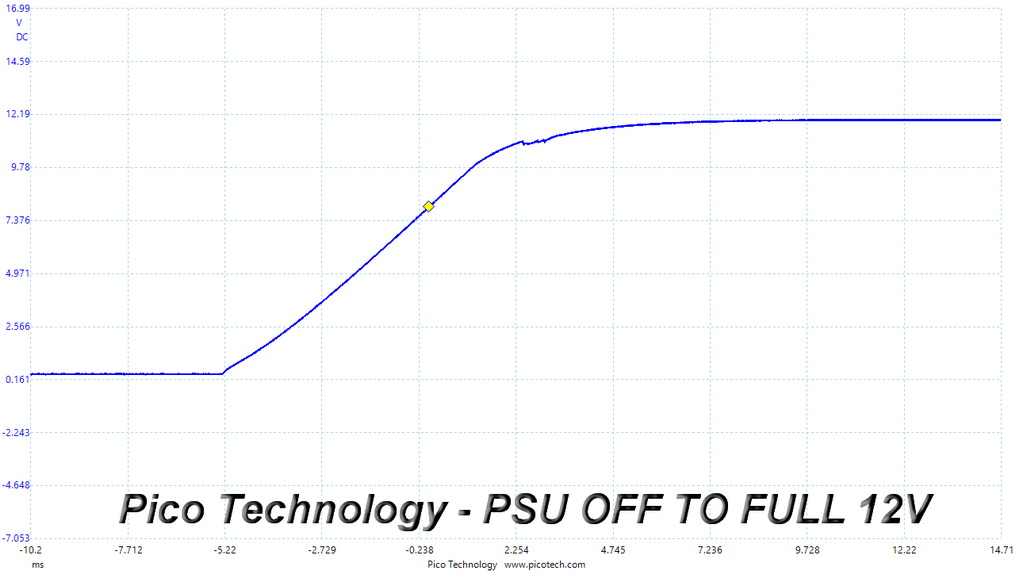
Turn-On transient response is close to perfect!
Power Supply Timing Tests
There are several signals generated by the power supply, which need to be within specified, by the ATX spec, ranges. If they are not, there can be compatibility issues with other system parts, especially mainboards. From year 2020, the PSU's Power-on time (T1) has to be lower than 150ms and the PWR_OK delay (T3) from 100 to 150ms, to be compatible with the Alternative Sleep Mode.
Get Tom's Hardware's best news and in-depth reviews, straight to your inbox.
| T1 (Power-on time) & T3 (PWR_OK delay) | ||
|---|---|---|
| Load | T1 | T3 |
| 20% | 62ms | 130ms |
| 100% | 62ms | 130ms |
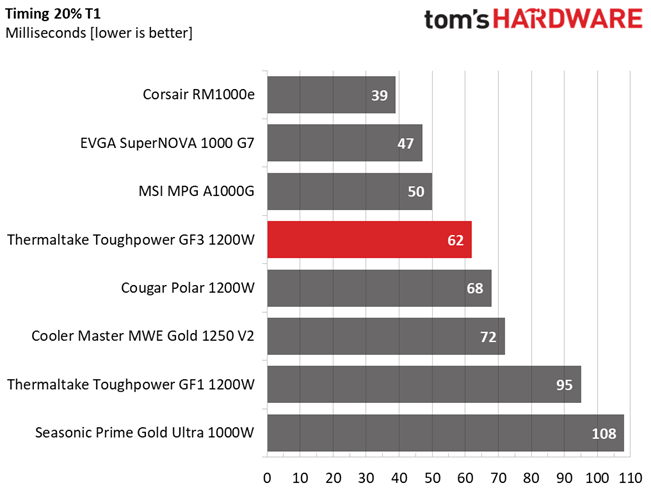
PSU Timing Charts
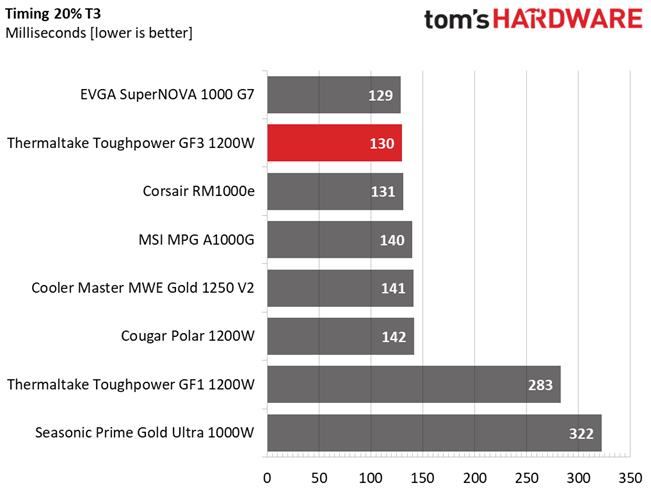
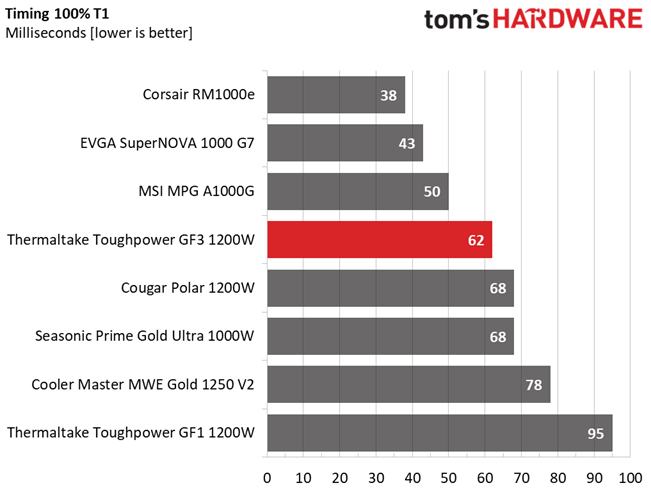
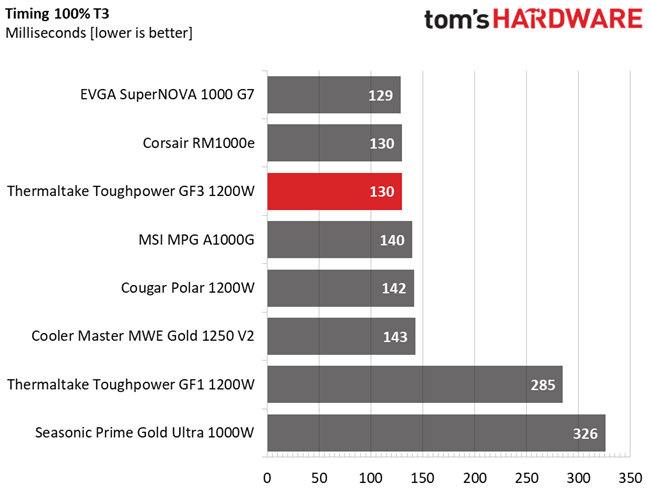
The PWR_OK delay is within the 100-150ms region, so the PSU supports the alternative sleep mode recommended by the ATX spec.
Ripple Measurements
Ripple represents the AC fluctuations (periodic) and noise (random) found in the PSU's DC rails. This phenomenon significantly decreases the capacitors' lifespan because it causes them to run hotter. A 10-degree Celsius increase can cut into a cap's useful life by 50%. Ripple also plays an important role in overall system stability, especially when overclocking is involved.
The ripple limits, according to the ATX specification, are 120mV (+12V) and 50mV (5V, 3.3V, and 5VSB).
| Test | 12V | 5V | 3.3V | 5VSB | Pass/Fail |
| 10% Load | 6.0 mV | 4.4 mV | 6.7 mV | 4.3 mV | Pass |
| 20% Load | 6.4 mV | 4.2 mV | 7.5 mV | 4.2 mV | Pass |
| 30% Load | 10.6 mV | 4.4 mV | 6.9 mV | 4.6 mV | Pass |
| 40% Load | 8.7 mV | 4.6 mV | 7.0 mV | 4.4 mV | Pass |
| 50% Load | 9.0 mV | 4.7 mV | 7.1 mV | 4.4 mV | Pass |
| 60% Load | 9.2 mV | 13.0 mV | 17.1 mV | 12.5 mV | Pass |
| 70% Load | 8.9 mV | 4.9 mV | 8.4 mV | 4.7 mV | Pass |
| 80% Load | 10.0 mV | 5.2 mV | 8.5 mV | 4.8 mV | Pass |
| 90% Load | 9.8 mV | 5.6 mV | 9.4 mV | 5.0 mV | Pass |
| 100% Load | 14.6 mV | 6.2 mV | 10.3 mV | 5.5 mV | Pass |
| 110% Load | 14.9 mV | 6.6 mV | 10.8 mV | 5.6 mV | Pass |
| Crossload 1 | 8.0 mV | 6.2 mV | 9.9 mV | 4.9 mV | Pass |
| Crossload 2 | 8.9 mV | 7.2 mV | 6.7 mV | 4.5 mV | Pass |
| Crossload 3 | 64.2 mV | 6.7 mV | 14.4 mV | 6.7 mV | Pass |
| Crossload 4 | 14.3 mV | 5.1 mV | 8.4 mV | 5.1 mV | Pass |
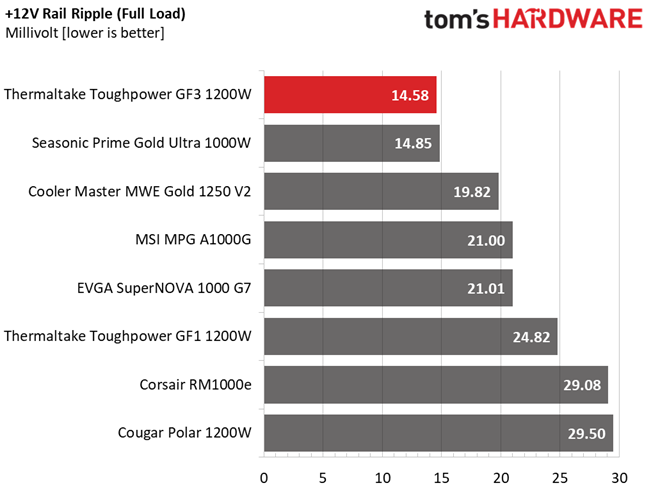
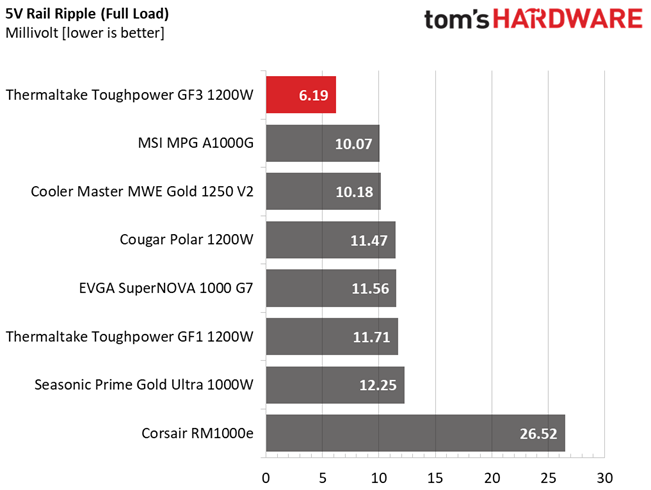
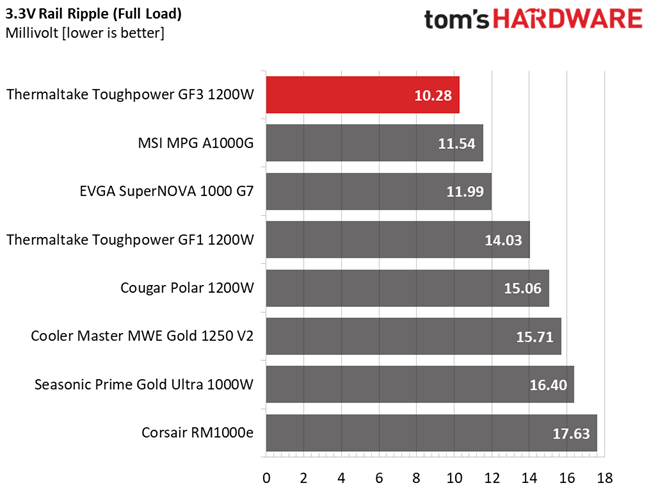
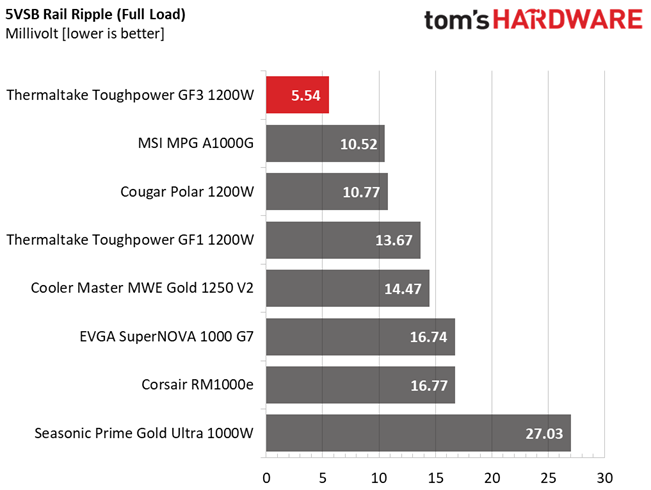
Ripple suppression is excellent!
Ripple At Full Load
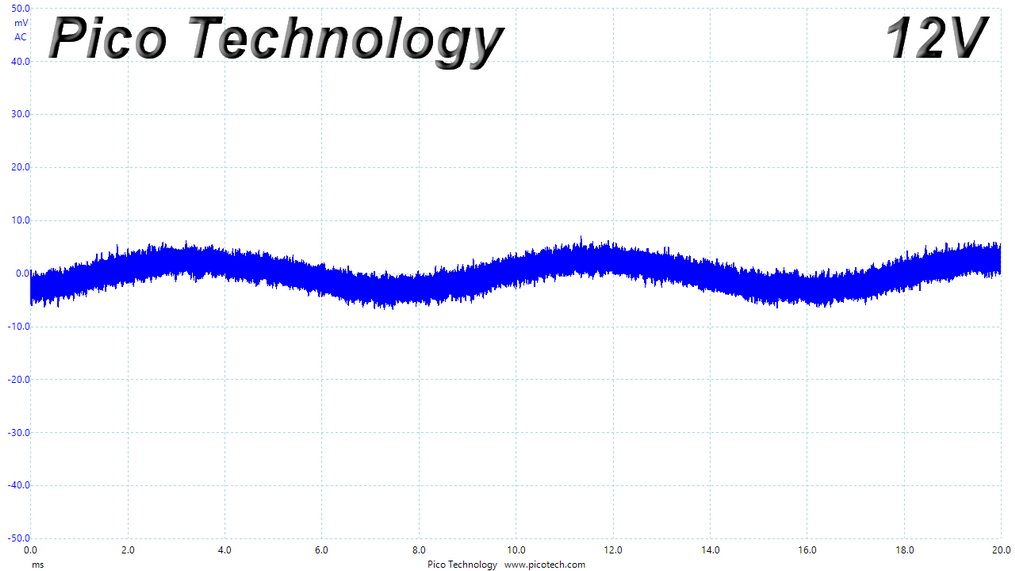
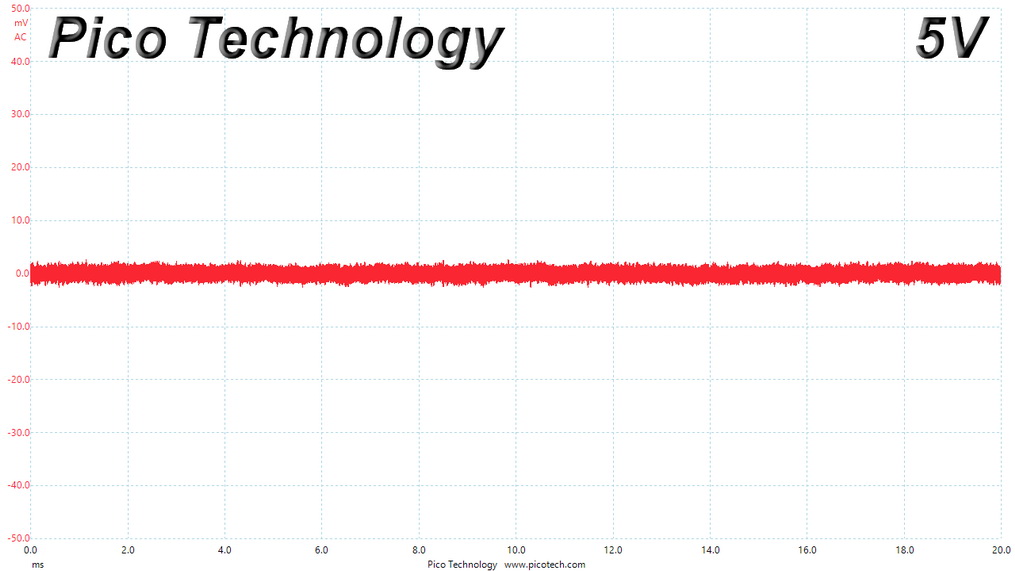
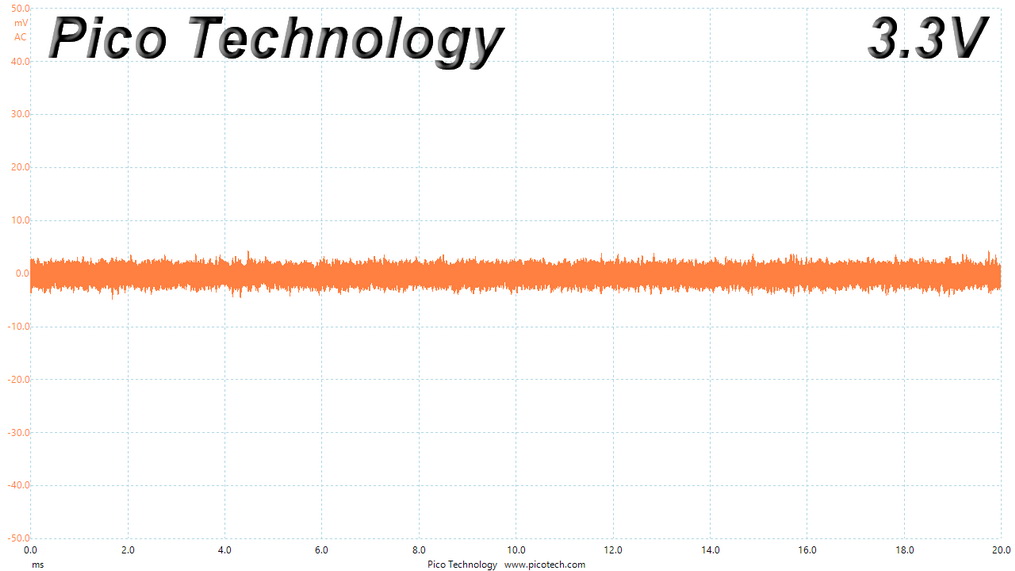
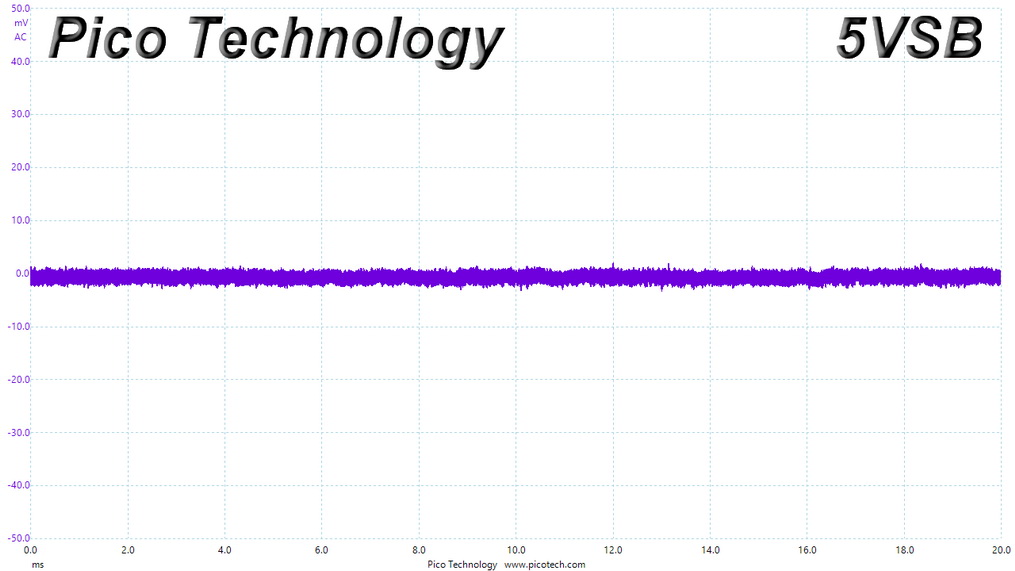
Ripple At 110% Load
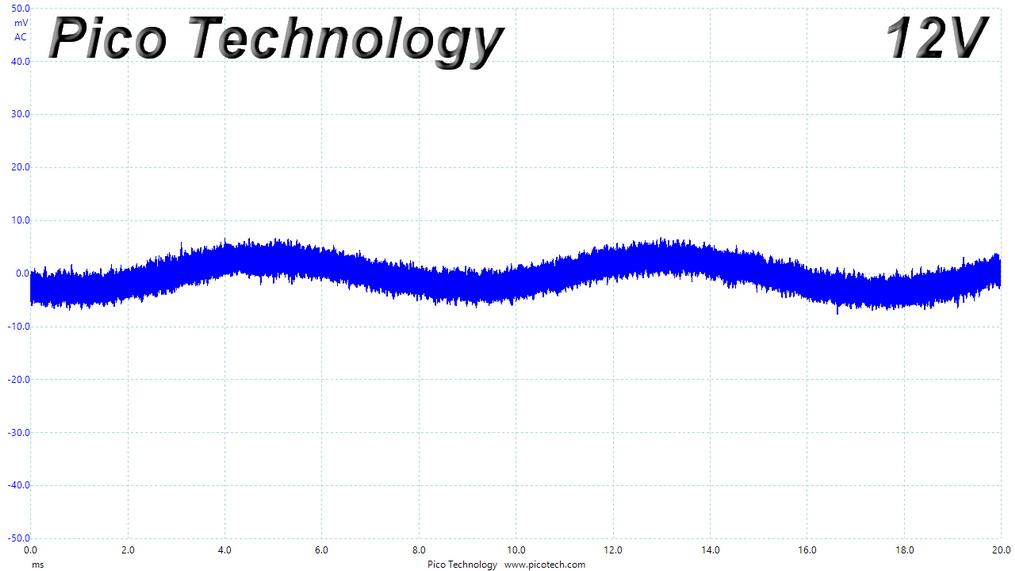
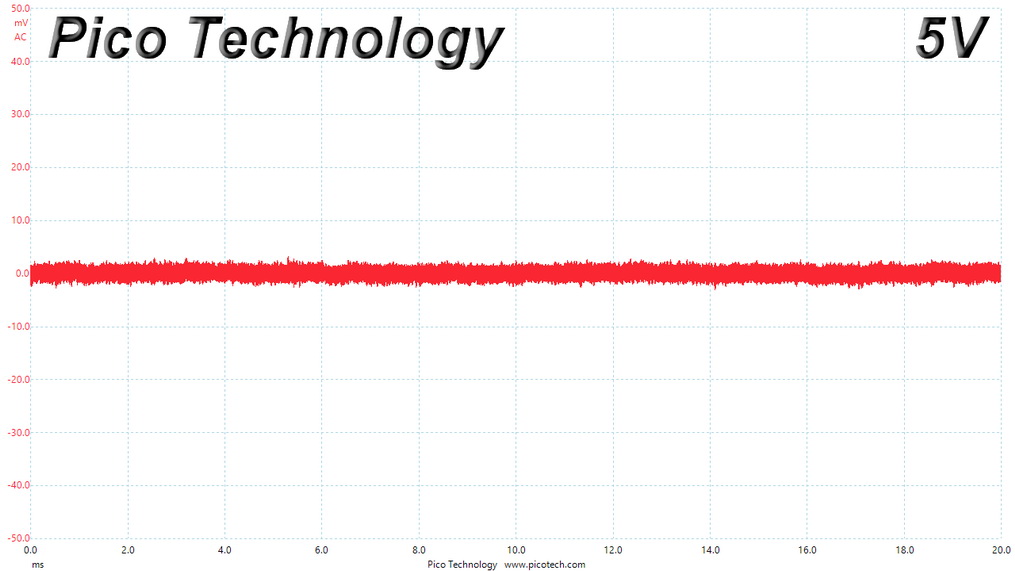
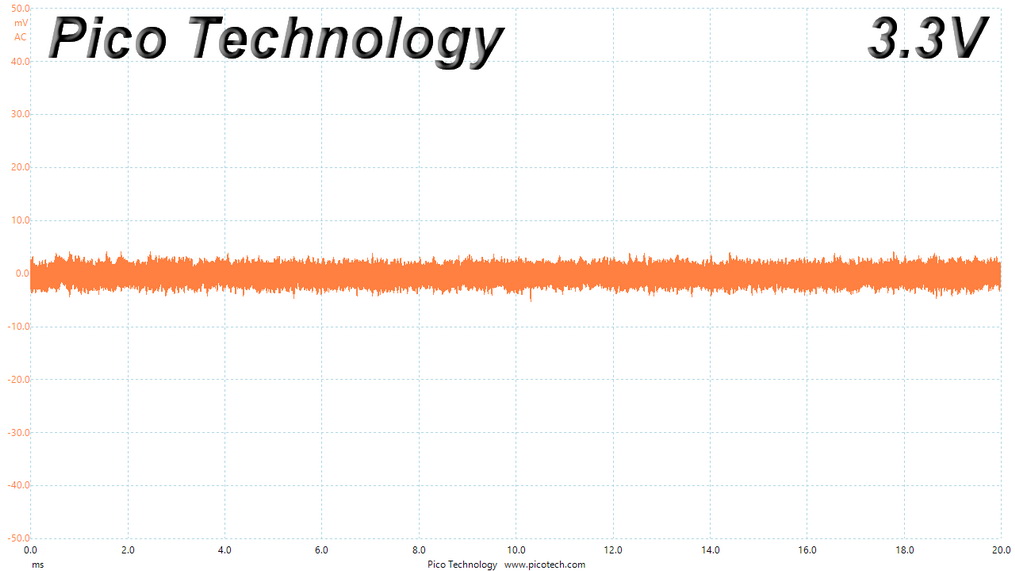
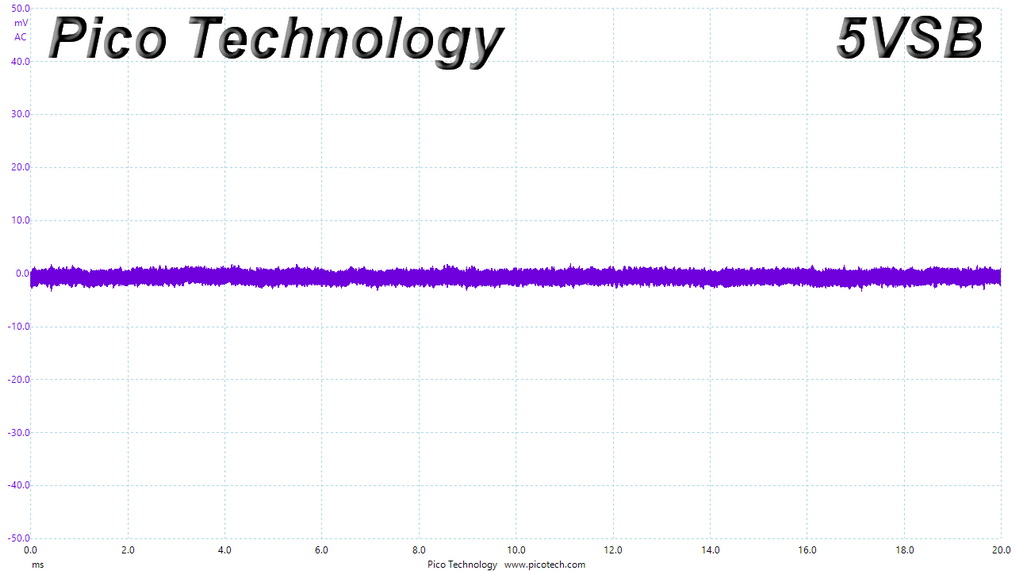
Ripple At Cross-Load 1
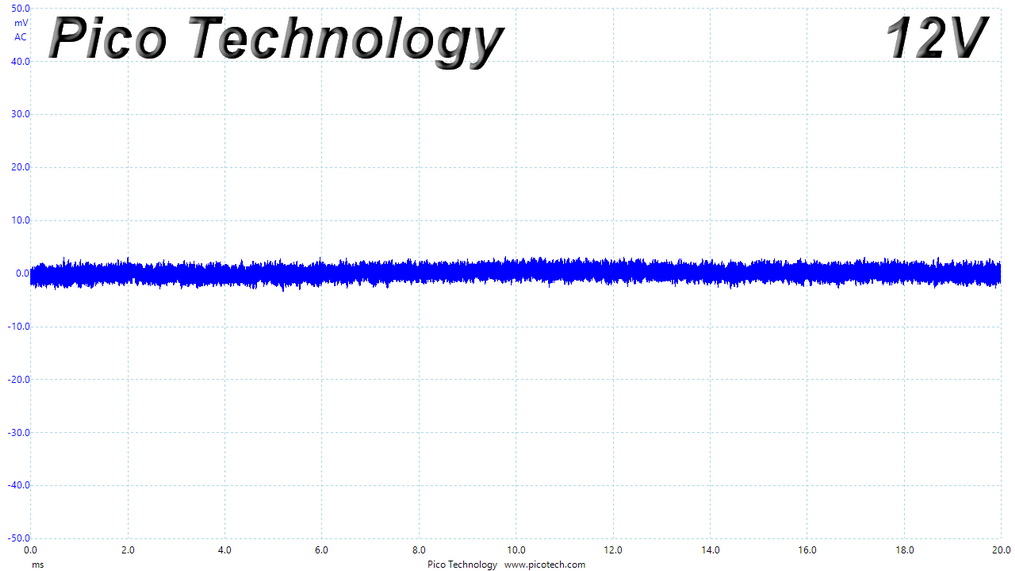
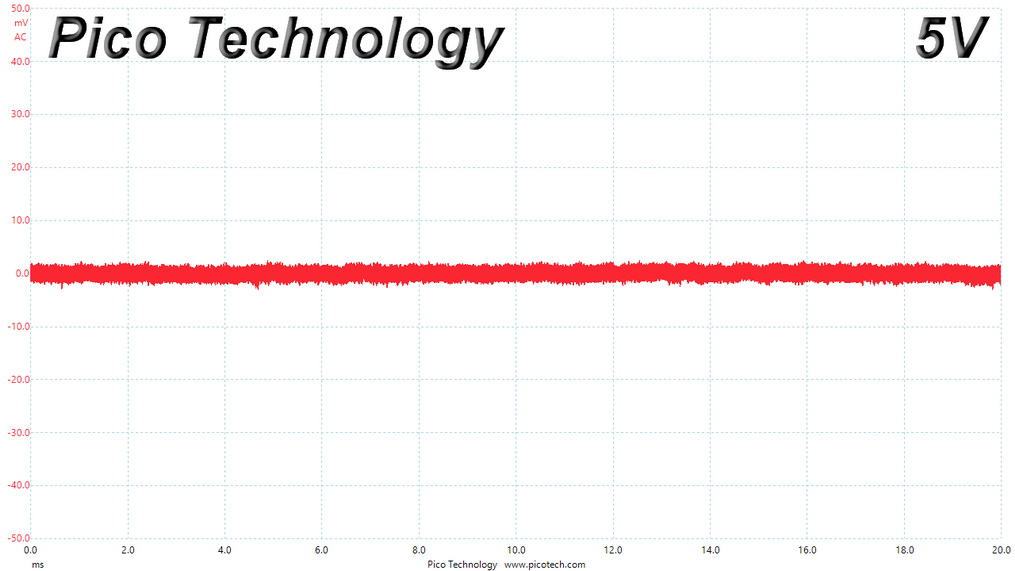
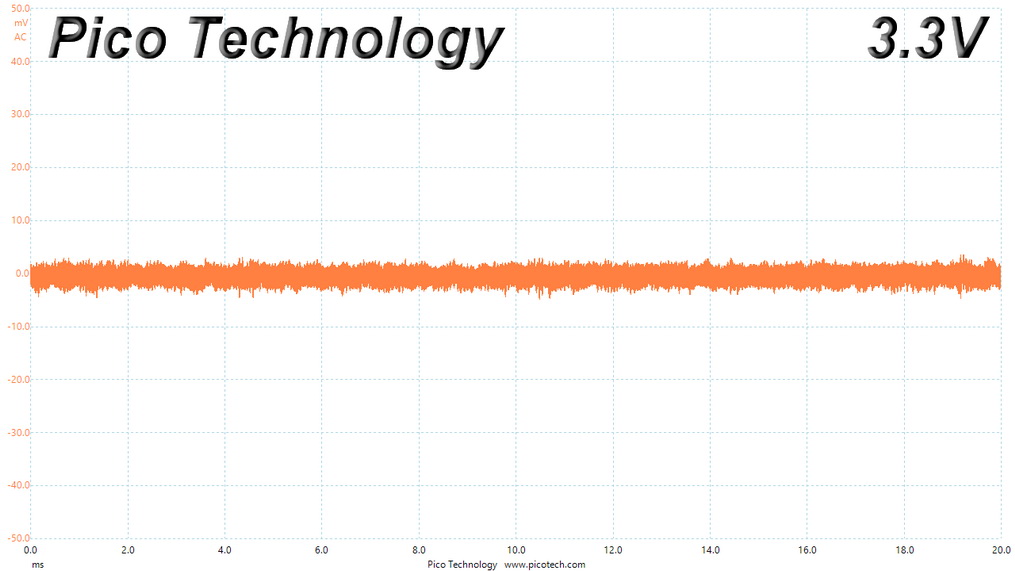
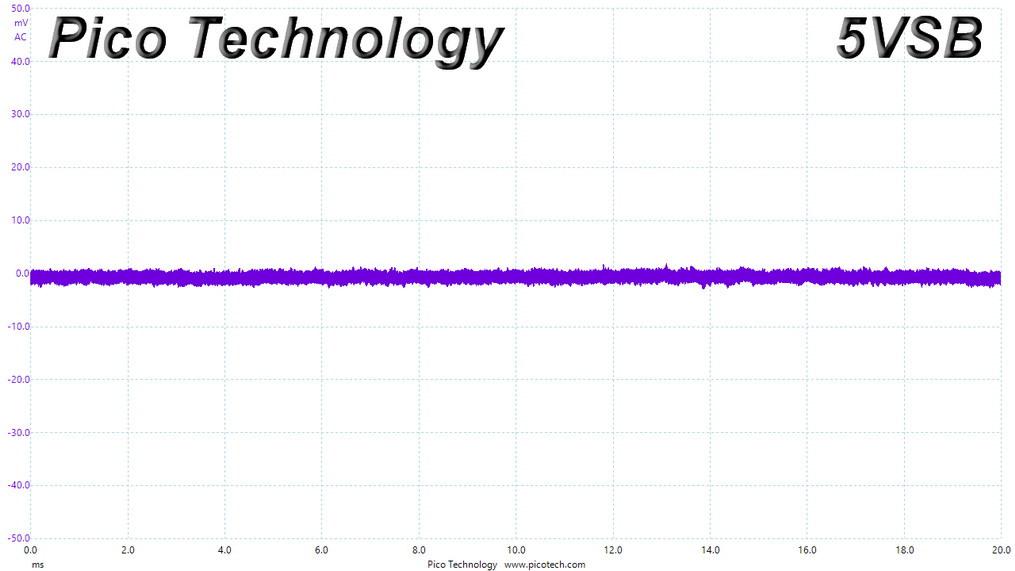
Ripple At Cross-Load 4
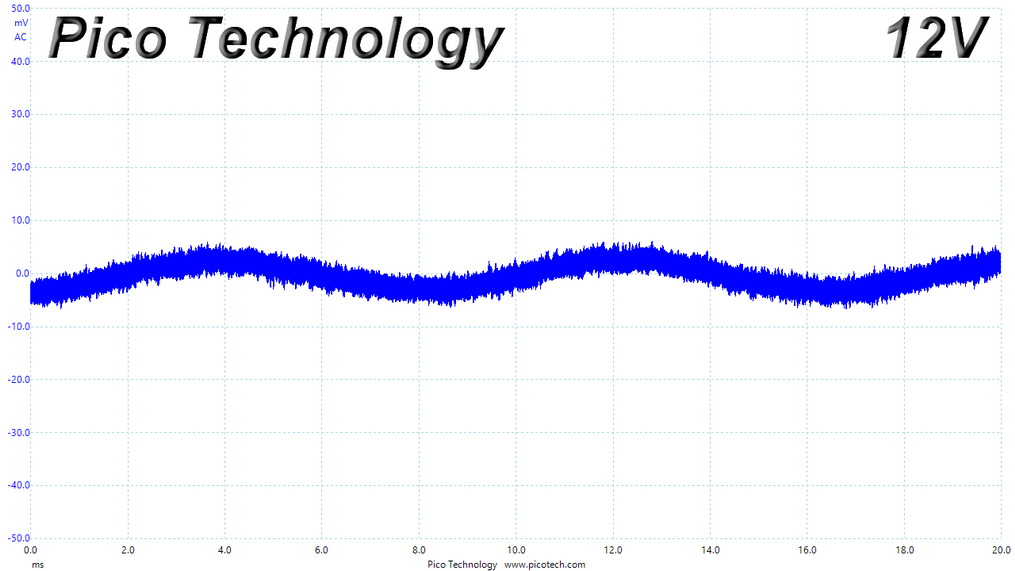
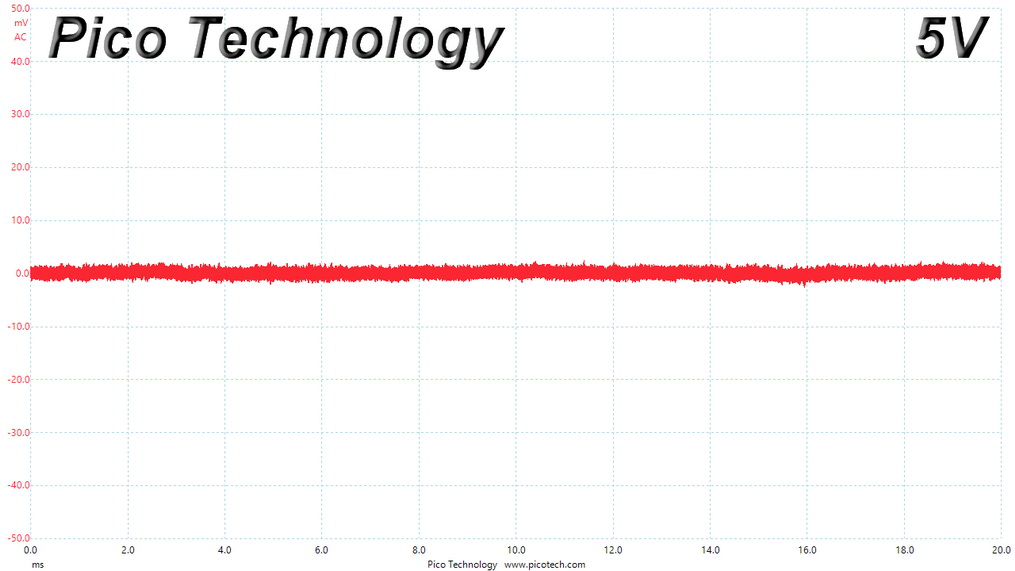
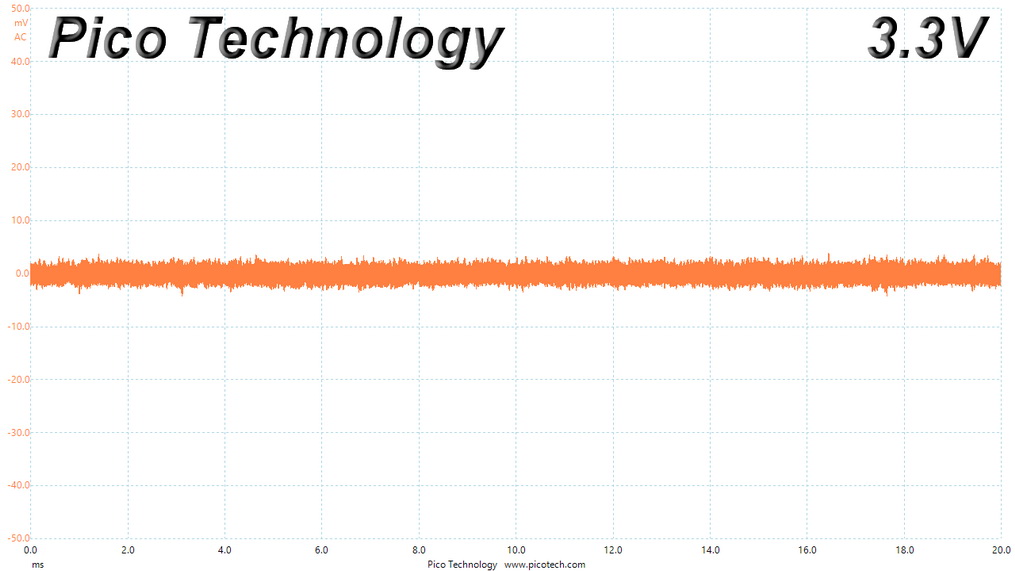
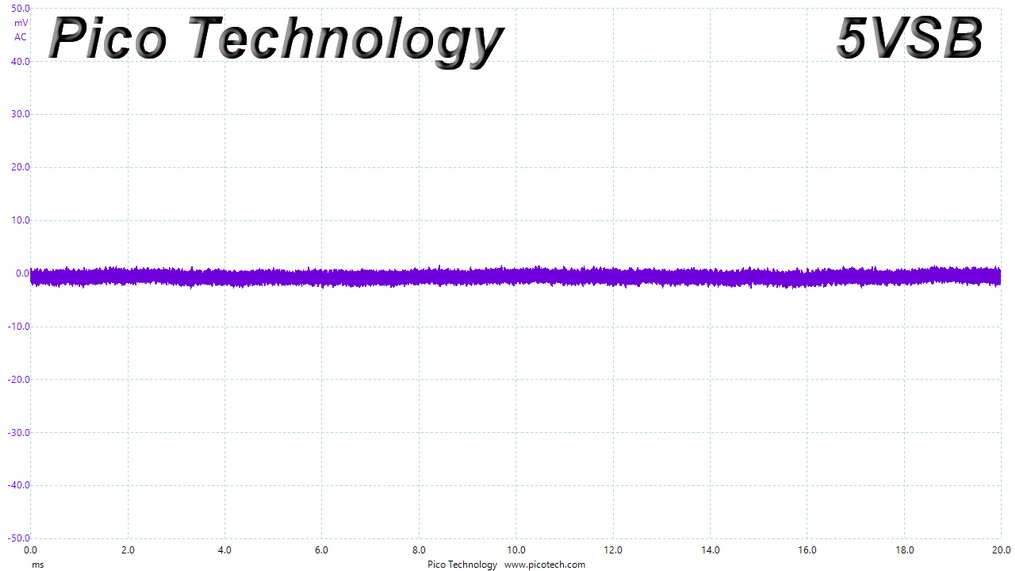
EMC Pre-Compliance Testing – Average & Quasi-Peak EMI Detector Results
Electromagnetic Compatibility (EMC) is the ability of a device to operate properly in its environment without disrupting the proper operation of other nearby devices.
Electromagnetic Interference (EMI) stands for the electromagnetic energy a device emits, and it can cause problems in other nearby devices if too high. For example, it can cause increased static noise in your headphones or/and speakers.
΅We use TekBox's EMCview to conduct our EMC pre-compliance testing.
Three spurs exceed the limits with the average EMI detector, but everything is fine with the peak detector.
MORE: Best Power Supplies
MORE: How We Test Power Supplies
MORE: All Power Supply Content
Current page: Transient Response Tests, Timing Tests, Ripple Measurements and EMC Pre-Compliance Testing
Prev Page Protection Features, DC Power Sequencing, Cross-Load Tests and Infrared Images Next Page Performance, Noise, Efficiency and Power Factor
Aris Mpitziopoulos is a contributing editor at Tom's Hardware, covering PSUs.
-
hexxum Didn’t the Toughpower gf3 1200w fail ATX 3.0 certification through Cybenetics? Here is a quote with links from Dogzilla09 from Overclockers:Reply
Here check the results (for Thermaltake Toughpower GF3) on the second page, under Results paragraph, there's no row with ATX 3.0 Ready/PCIE 5.0 ready (previous designation) written:
https://www.cybenetics.com/d/cybenetics_TLu.pdfHere's how it should look like on the 1000W GF3 model:
https://www.cybenetics.com/d/cybenetics_1GW.pdfNow here's the MSI Ai1300P (it has different wording, but it's also passed testing).
https://www.cybenetics.com/d/cybenetics_jWP.pdf -
vashtanerada It definitely says that it passed ATX 3.0. Unless something changed since you posted this.Reply -
hexxum I contacted Cybenetics about this and the SilverStone Hela 1200r since both failed. They both failed a transient load test. Thermaltake was already sending them a new test unit, which has since passed and Cybenetics has updated their data sheet. Also contacted SilverStone. They said had sent Cybenetics a preproduction unit and that they’d be in contact with them to get it resolved. I haven’t seen any updates for the Hela 1200r yet.Reply -
Parallax1 I have startup noise problem with this. Im definetly sure its not the fan, i tried to stop it from exterior and still noise happens. I guess high inrush current causing this for 1 second, but is that harmful for psu or pc?Reply
Here is the noise :
https://youtube.com/shorts/An8ypTL-JaU?feature=share -
hexxum ReplyParallax1 said:I have startup noise problem with this. Im definetly sure its not the fan, i tried to stop it from exterior and still noise happens. I guess high inrush current causing this for 1 second, but is that harmful for psu or pc?
Here is the noise :
https://youtube.com/shorts/An8ypTL-JaU?feature=share
I had a Hela 1200r for a hot minute and it made a similar noise. I use a smart plug with my computer to fully cut off power after shut down. In a way it’s like flipping the switch on the psu to fully cut power. I noticed the psu would make this noise when I turned the computer back on. Didn’t seem to happen if I would shutdown the computer and turn it back on without fully cutting the power at the plug, which leads me to believe the noise is from some component in the psu when it first gets loaded with electricity. I ended up returning the Hela 1200r due to it failing atx 3.0 certification. I now have a msi ai1300p and I’ve never heard it make that noise. The Hela 1200r operated fine though so I don’t think this sound is something to worry about.
Also to anyone else following earlier posts of mine in this thread. The Hela 1200r sent a new production unit to Cybenetics and it has now passed atx 3.0 certification. Apparently they had sent a pre production unit first and that’s why it failed one of the transient load tests. -
Parallax1 Reply
Probably both use the same PCB, both are CWT production. I couldn't trust it and then returned it because I was going to use it as a rendering and workstation.hexxum said:I had a Hela 1200r for a hot minute and it made a similar noise. I use a smart plug with my computer to fully cut off power after shut down. In a way it’s like flipping the switch on the psu to fully cut power. I noticed the psu would make this noise when I turned the computer back on. Didn’t seem to happen if I would shutdown the computer and turn it back on without fully cutting the power at the plug, which leads me to believe the noise is from some component in the psu when it first gets loaded with electricity. I ended up returning the Hela 1200r due to it failing atx 3.0 certification. I now have a msi ai1300p and I’ve never heard it make that noise. The Hela 1200r operated fine though so I don’t think this sound is something to worry about.
Also to anyone else following earlier posts of mine in this thread. The Hela 1200r sent a new production unit to Cybenetics and it has now passed atx 3.0 certification. Apparently they had sent a pre production unit first and that’s why it failed one of the transient load tests.
Probably youre right. Mine has cutoff mechanism inside, i can barely hear that something cutting off the power, but you cant control it.
I have ordered FSP Hydro PTM Pro 1200w atx 3.0 now, I know that FSP keeps the product controls tight, I hope I will be satisfied.
